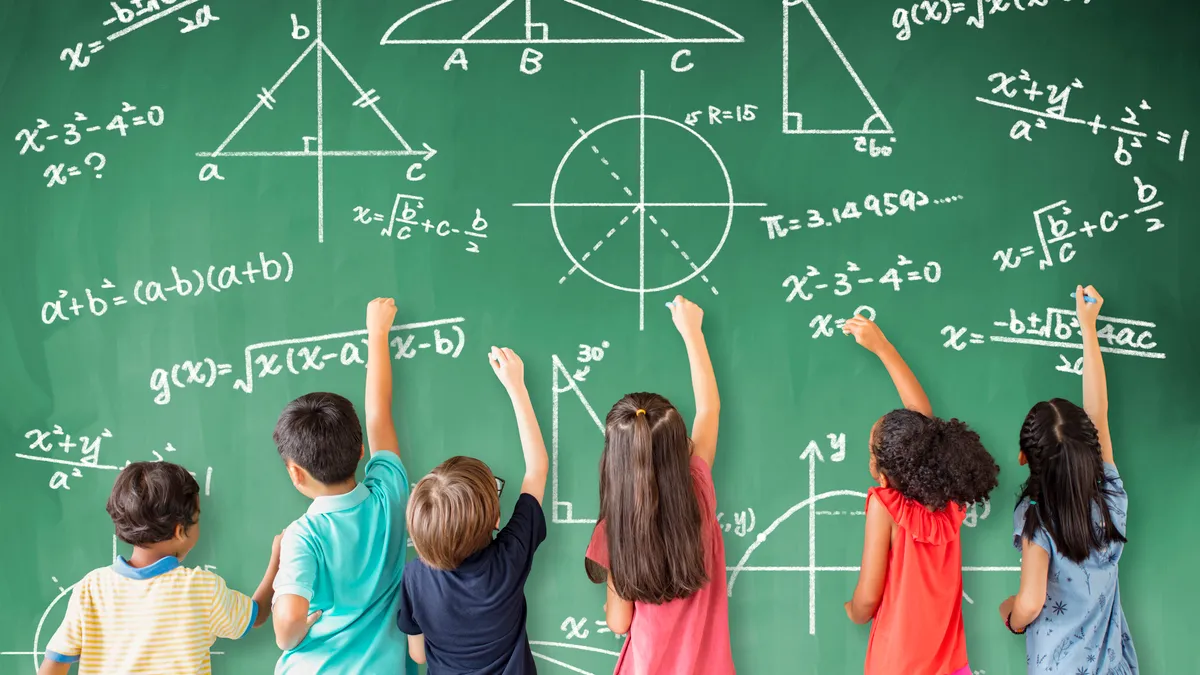Dive Brief:
- A new campaign launched Wednesday seeks to help parents practice math skills with their children and have better-informed conversations with teachers about a student's math progress. In addition, the Be Part of the Equation campaign from the nonprofit Bedtime Math Foundation encourages parents to talk to policymakers about the importance of math education in children's academic success.
- “Right now, students nationwide are five months behind in math — but most parents think their kids are on track," said Laura Overdeck, founder and president of Bedtime Math Foundation, in an email. "We need to close this gap between perception and reality, and bring parents into the equation."
- The campaign recommends a 10-second parent-child math checkup that has different math skills questions based on a student's grade level, from kindergarten through middle school. Parents are encouraged to ask their child's school about the math curriculum and about math supplements, tutoring or events the school offers. They are also advised to model positive math attitudes.
Dive Insight:
Nationwide, students' math progress dipped during the pandemic. Educators said math was harder to teach in virtual settings and that students were less likely to naturally practice math skills outside of the classroom as they do reading skills.
However, a recent analysis by NWEA, which administers the MAP Growth assessments, shows hints of academic rebound in both math and reading from fall 2021 to spring 2022. Researchers also found year-to-year improvements. For example, there was a 27% improvement in math test scores between spring 2021 3rd-grade test takers and spring 2022 4th-grade test takers.
Change in pandemic math achievement gaps compared to non-pandemic trends
NWEA research points out that student achievement at the end of the 2021-22 school year was lower than in a pre-pandemic year, and that Black, Hispanic and American Indian/Alaska Native students had larger achievement declines compared to White and Asian American students.
Schools have used federal relief aid to expand learning recovery opportunities for students, including summer programs targeting math skills. Research from the American Educational Research Association found children involved in math-focused summer programs tended to score higher on standardized math tests and had higher grades in math classes than other students.
Schools are also expanding STEM course offerings during the school year. Educators in at least three states are exploring instruction in data analytics and the statistical problem-solving process. A program is also available to train school counselors in understanding the computing field so that students can have more exposure to computing activities.







 Dive Awards
Dive Awards




